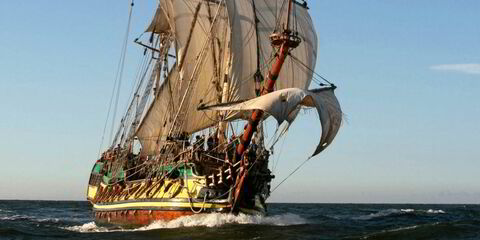Euronav’s decision to delay delivery of two very large crude carriers (VLCCs) does little to relieve any supply-demand imbalance in the tanker market, according to a UBS report.
But it does help Euronav squeeze an extra year of life out of the ships and hold on to some cash in the interim. Other owners may borrow from that playbook through the remainder of the year.
Euronav says it would take delivery of two Hyundai Heavy Industries-built VLCCs in January 2017 instead of the original dates in October and December. The delayed delivery shifts some $97m in payments into the next year.
UBS analyst Spiro Dounis says the delay may mean less rate volatility through the end of the year as less supply hits the market. But it does remove the fact that more tankers continue to hit the market amid only tepid forecasts for growth in world crude oil demand.
“Delays or smoothing out are more likely to drive less rate volatility, but a ceiling on rates will likely remain during 2017 given the orderbook size,” Dounis said in a report.
Moreover, newbuildings scheduled for delivery late in the year are more likely to face slippage into the next year anyway, Dounis says, as shipowners effectively get a ship with an extra year of earnings life out of a ship.
“The delay means these VLCCs will now be 2017 vintage which pushes out drydock timing and increase the vessel value due to age,” Dounis writes. “The move effectively squeezes out a longer trading life with oil majors who have stricter vetting requirements on age.”
Dounis calculates the current orderbook, now excluding Euronav’s two delivers, implies 3.2% of the VLCC fleet will deliver between now and December. Clarksons data shows nine of the remaining 22 vessel deliveries for 2016 are expected to deliver in December. But Dounis says it’s “highly unlikely” all those ships deliver.
One of the ships listed in Clarksons for December delivery will be delivered next year. Tsakos Energy Navigation will take delivery of a Hyundai-built VLCC, the 300,000-dwt Hercules, between Jnauary and March of 2017, according to a Tsakos representative. It was originally scheduled for December 2016 delivery.
Among owners with remaining newbuildings are Gener8 Maritime, which is on tap to take four VLCCs through the end of the year, two from Hyundai, one from Hanjin Heavy Industries and one from Shanghai’s SWS shipyard. Frontline is scheduled to take two VLCCs, built by Hyundai. Representatives of Frontline and Gener8 were unavailable to comment on whether their deliveries would be delayed.


